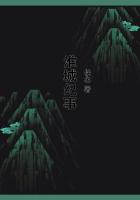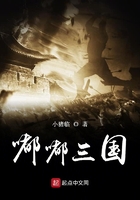"Are there any stories connected with this prison besides the one relating to the poisoning of Mirabeau?" asked the count; "are there any traditions respecting these dismal abodes, -- in which it is difficult to believe men can ever have imprisoned their fellow-creatures?""Yes, sir; indeed, the jailer Antoine told me one connected with this very dungeon."Monte Cristo shuddered; Antoine had been his jailer.He had almost forgotten his name and face, but at the mention of the name he recalled his person as he used to see it, the face encircled by a beard, wearing the brown jacket, the bunch of keys, the jingling of which he still seemed to hear.The count turned around, and fancied he saw him in the corridor, rendered still darker by the torch carried by the concierge."Would you like to hear the story, sir?""Yes; relate it," said Monte Cristo, pressing his hand to his heart to still its violent beatings; he felt afraid of hearing his own history.
"This dungeon," said the concierge, "was, it appears, some time ago occupied by a very dangerous prisoner, the more so since he was full of industry.Another person was confined in the Chateau at the same time, but he was not wicked, he was only a poor mad priest.""Ah, indeed? -- mad!" repeated Monte Cristo; "and what was his mania?""He offered millions to any one who would set him at liberty."Monte Cristo raised his eyes, but he could not see the heavens; there was a stone veil between him and the firmament.He thought that there had been no less thick a veil before the eyes of those to whom Faria offered the treasures."Could the prisoners see each other?" he asked.
"Oh, no, sir, it was expressly forbidden; but they eluded the vigilance of the guards, and made a passage from one dungeon to the other.""And which of them made this passage?"
"Oh, it must have been the young man, certainly, for he was strong and industrious, while the abbe was aged and weak;besides, his mind was too vacillating to allow him to carry out an idea.""Blind fools!" murmured the count.
"However, be that as it may, the young man made a tunnel, how or by what means no one knows; but he made it, and there is the evidence yet remaining of his work.Do you see it?"and the man held the torch to the wall.
"Ah, yes; I see," said the count, in a voice hoarse from emotion.
"The result was that the two men communicated with one another; how long they did so, nobody knows.One day the old man fell ill and died.Now guess what the young one did?""Tell me."
"He carried off the corpse, which he placed in his own bed with its face to the wall; then he entered the empty dungeon, closed the entrance, and slipped into the sack which had contained the dead body.Did you ever hear of such an idea?" Monte Cristo closed his eyes, and seemed again to experience all the sensations he had felt when the coarse canvas, yet moist with the cold dews of death, had touched his face.The jailer continued: "Now this was his project.
He fancied that they buried the dead at the Chateau d'If, and imagining they would not expend much labor on the grave of a prisoner, he calculated on raising the earth with his shoulders, but unfortunately their arrangements at the Chateau frustrated his projects.They never buried the dead;they merely attached a heavy cannon-ball to the feet, and then threw them into the sea.This is what was done.The young man was thrown from the top of the rock; the corpse was found on the bed next day, and the whole truth was guessed, for the men who performed the office then mentioned what they had not dared to speak of before, that at the moment the corpse was thrown into the deep, they heard a shriek, which was almost immediately stifled by the water in which it disappeared." The count breathed with difficulty;the cold drops ran down his forehead, and his heart was full of anguish.
"No," he muttered, "the doubt I felt was but the commencement of forgetfulness; but here the wound reopens, and the heart again thirsts for vengeance.And the prisoner," he continued aloud, "was he ever heard of afterwards?""Oh, no; of course not.You can understand that one of two things must have happened; he must either have fallen flat, in which case the blow, from a height of ninety feet, must have killed him instantly, or he must have fallen upright, and then the weight would have dragged him to the bottom, where he remained -- poor fellow!""Then you pity him?" said the count.
"Ma foi, yes; though he was in his own element.""What do you mean?"
"The report was that he had been a naval officer, who had been confined for plotting with the Bonapartists.""Great is truth," muttered the count, "fire cannot burn, nor water drown it! Thus the poor sailor lives in the recollection of those who narrate his history; his terrible story is recited in the chimney-corner, and a shudder is felt at the description of his transit through the air to be swallowed by the deep." Then, the count added aloud, "Was his name ever known?""Oh, yes; but only as No.34."
"Oh, Villefort, Villefort," murmured the count, "this scene must often have haunted thy sleepless hours!""Do you wish to see anything more, sir?" said the concierge.
"Yes, especially if you will show me the poor abbe's room.""Ah -- No.27."
"Yes; No.27." repeated the count, who seemed to hear the voice of the abbe answering him in those very words through the wall when asked his name.
"Come, sir."
"Wait," said Monte Cristo, "I wish to take one final glance around this room.""This is fortunate," said the guide; "I have forgotten the other key.""Go and fetch it."
"I will leave you the torch, sir."
"No, take it away; I can see in the dark.""Why, you are like No.34.They said he was so accustomed to darkness that he could see a pin in the darkest corner of his dungeon.""He spent fourteen years to arrive at that," muttered the count.
The guide carried away the torch.The count had spoken correctly.Scarcely had a few seconds elapsed, ere he saw everything as distinctly as by daylight.Then he looked around him, and really recognized his dungeon.














